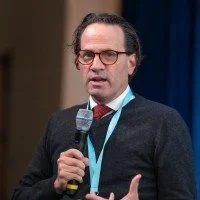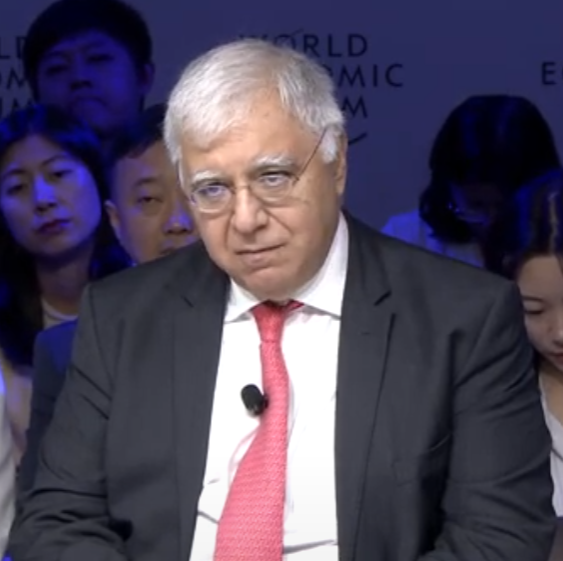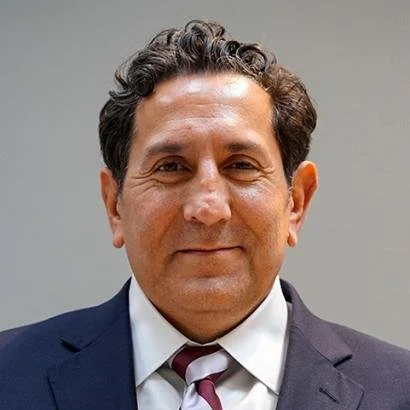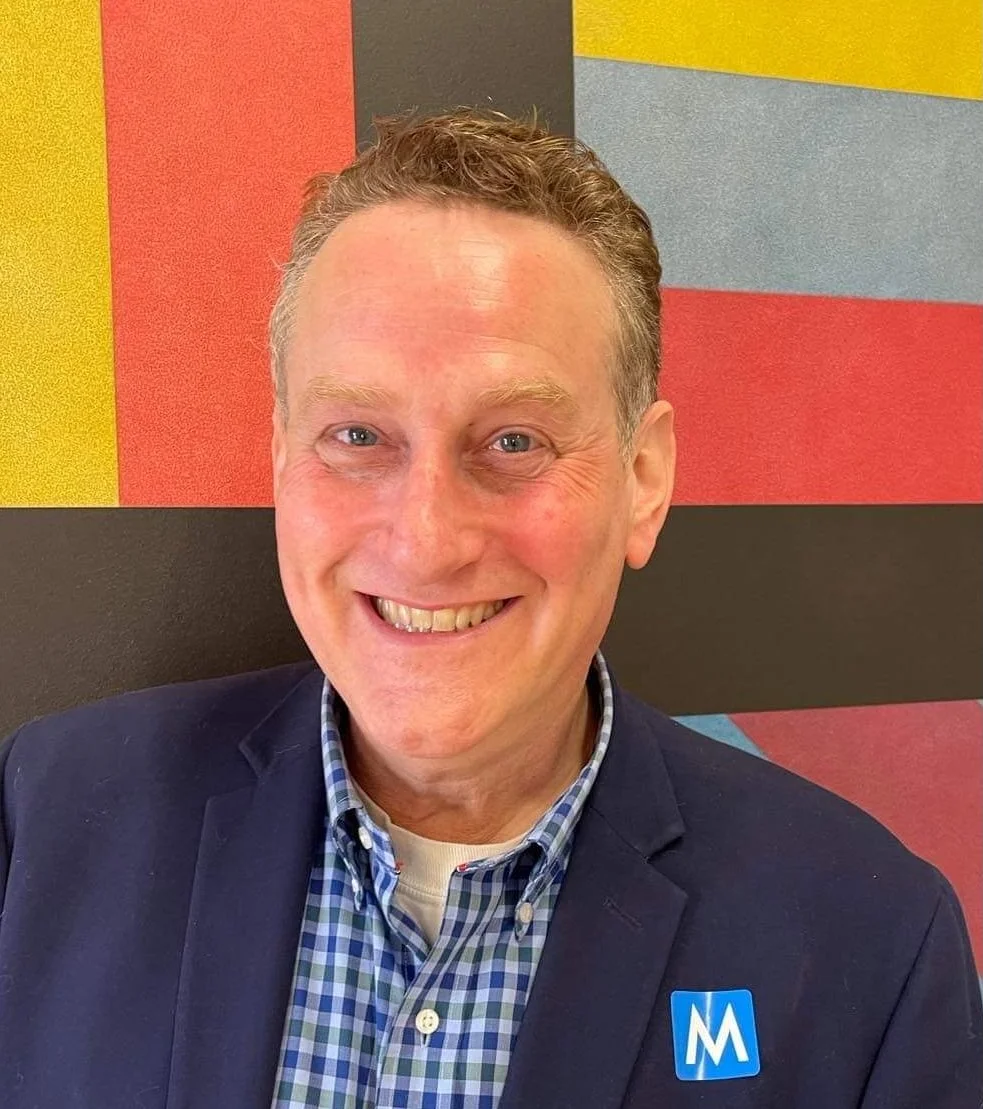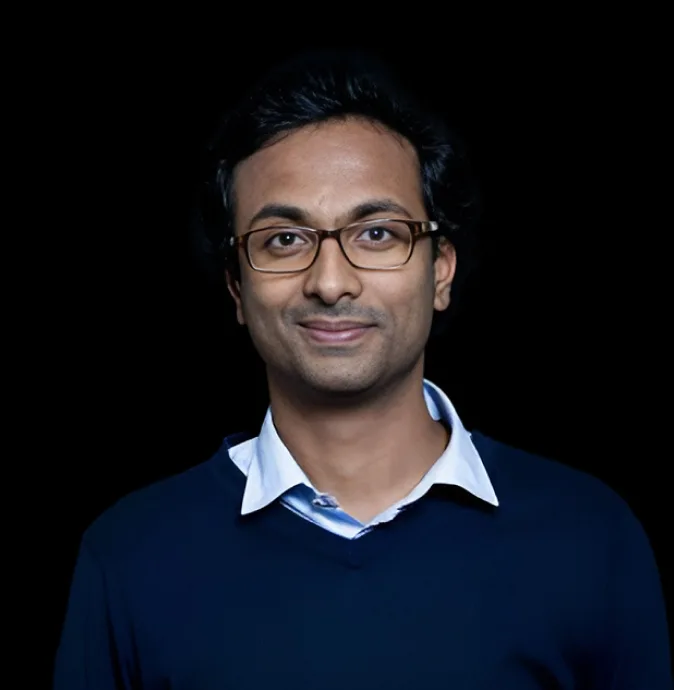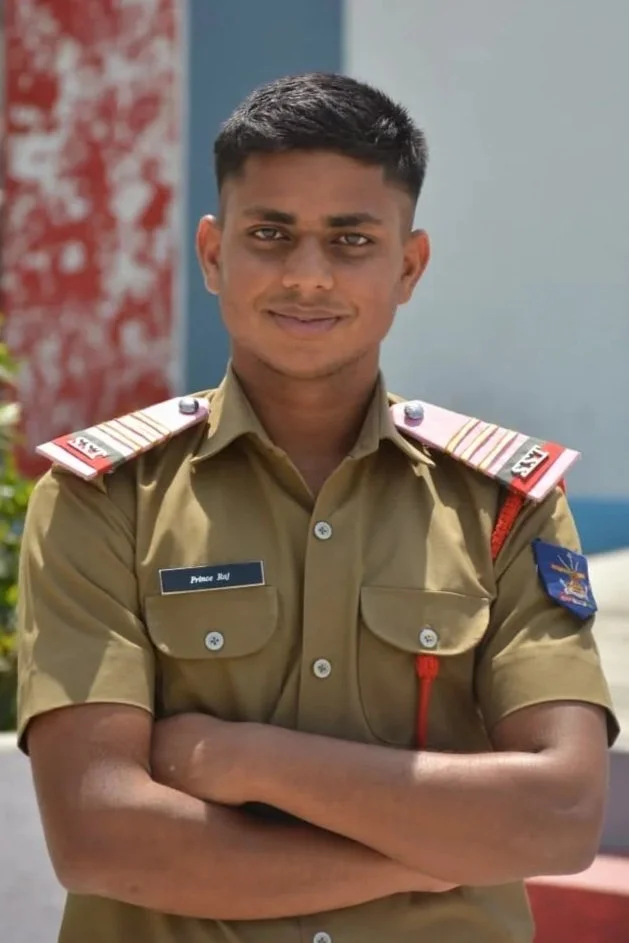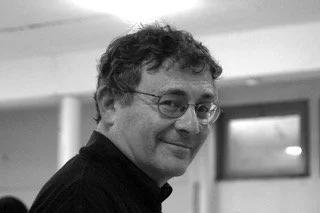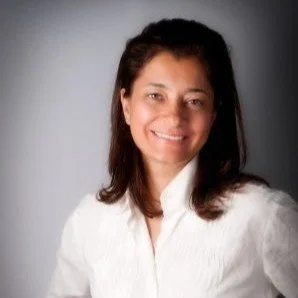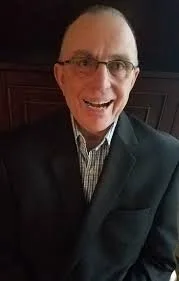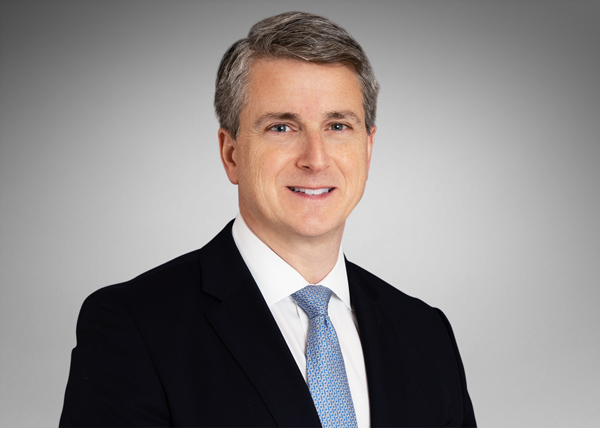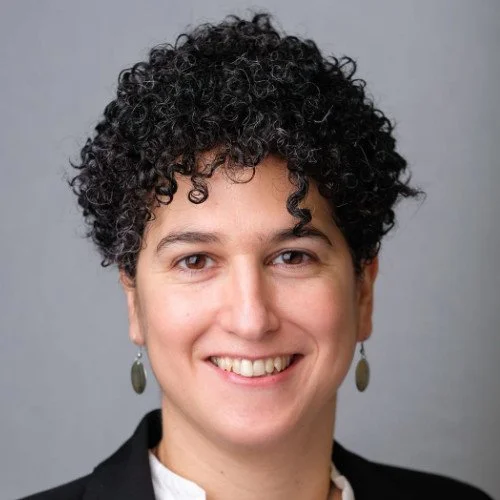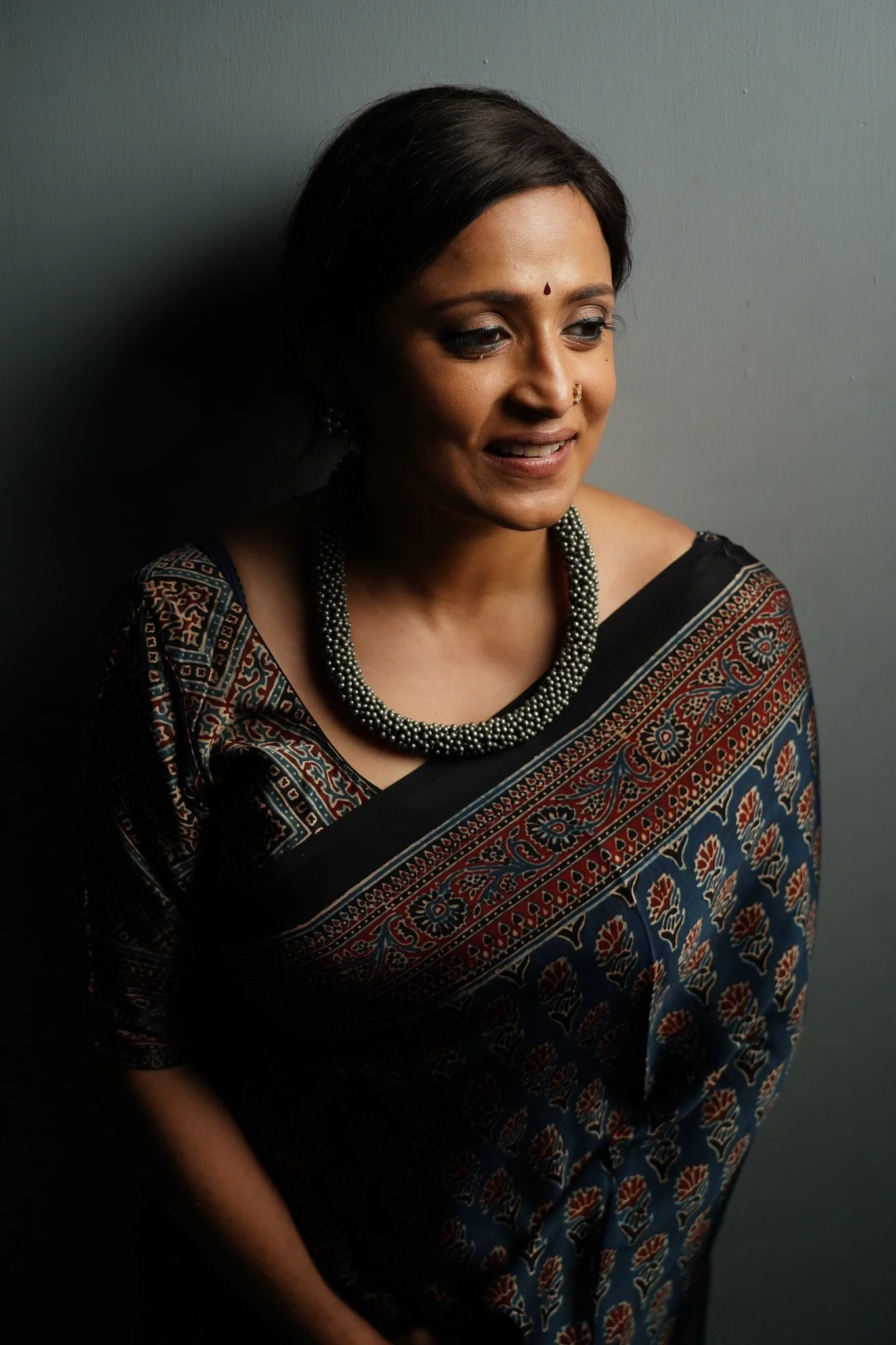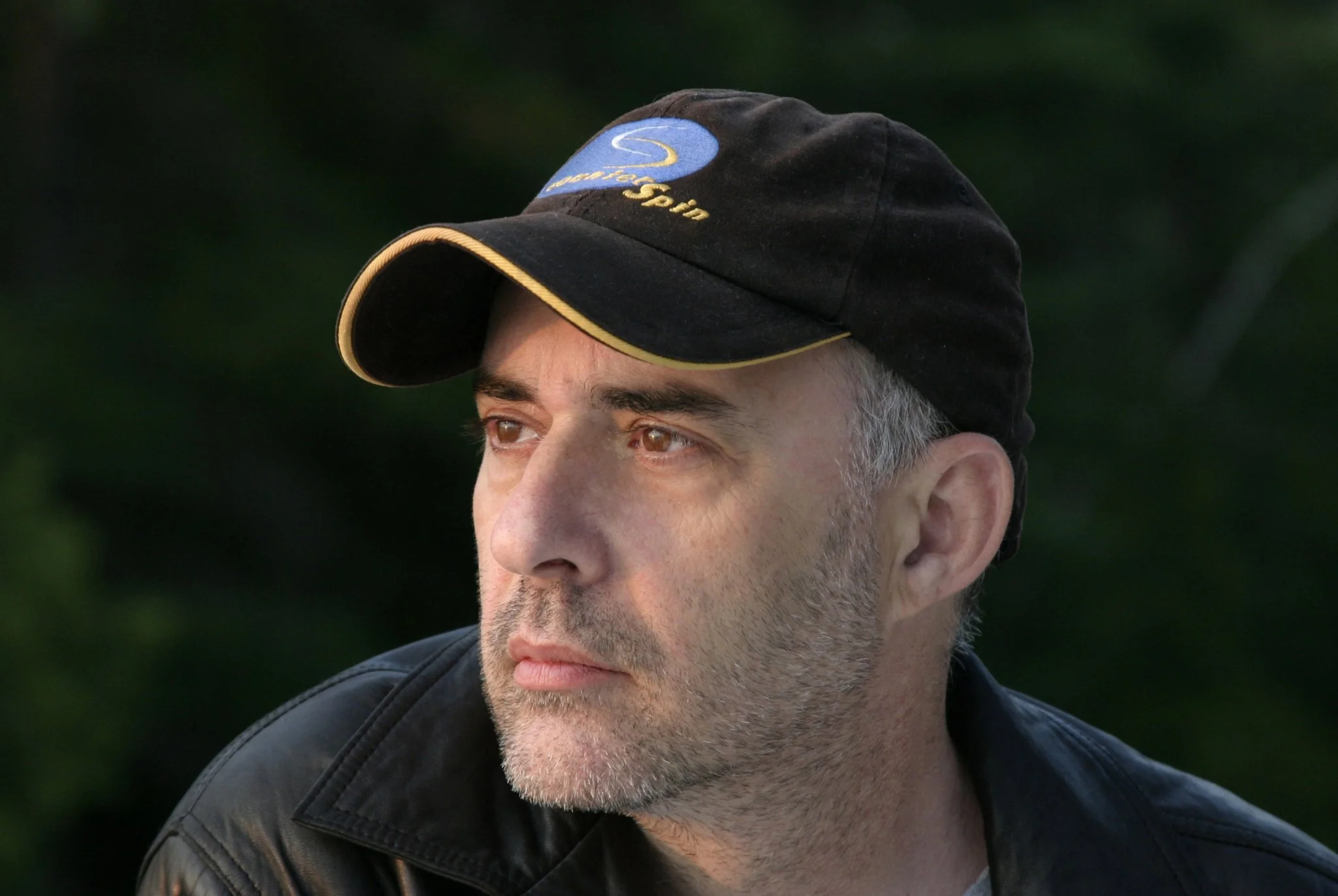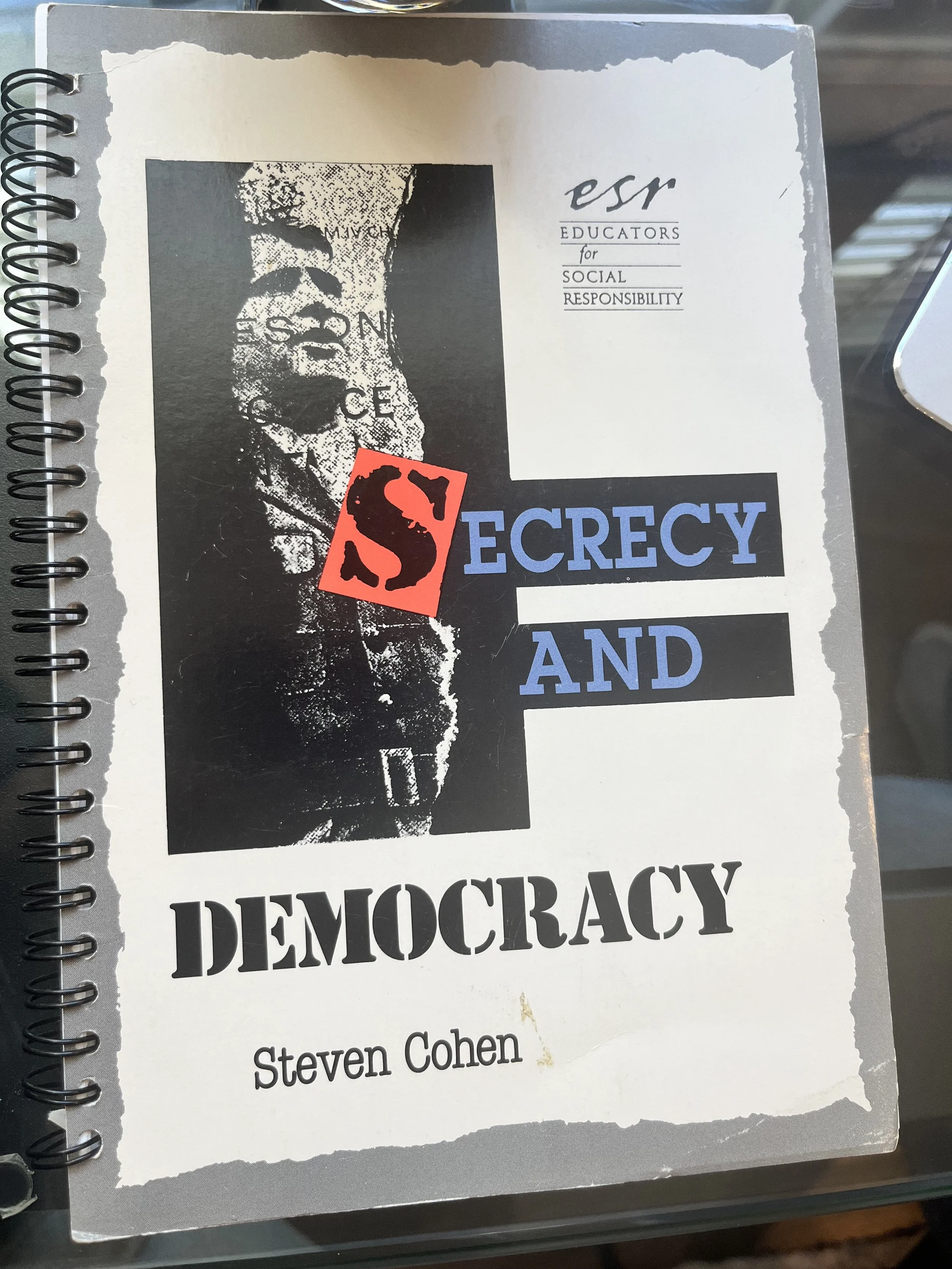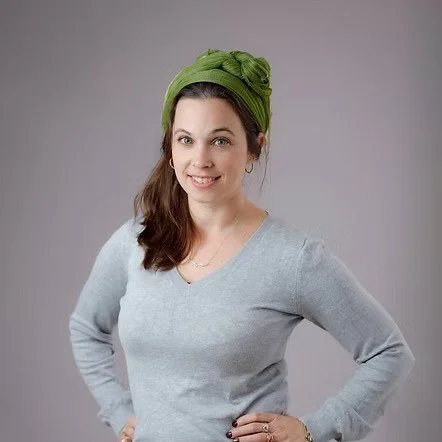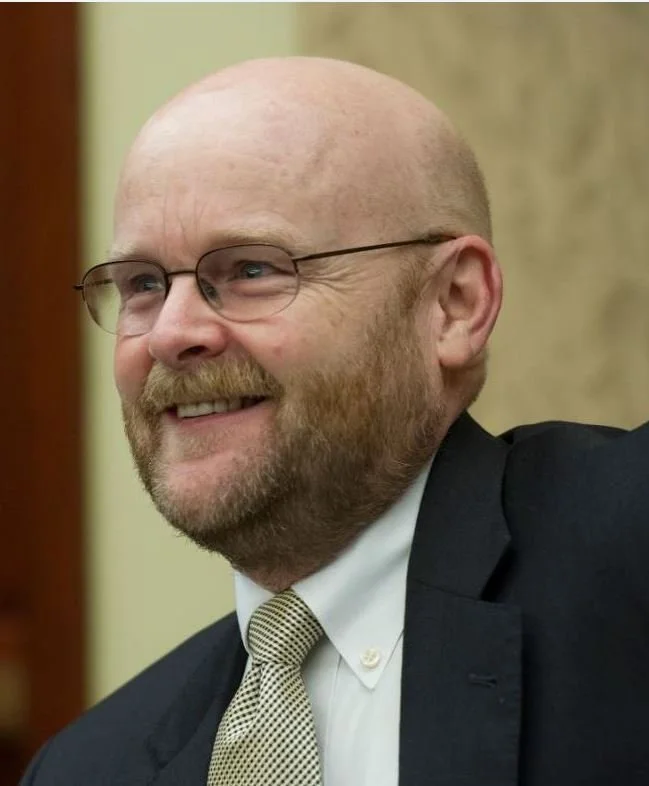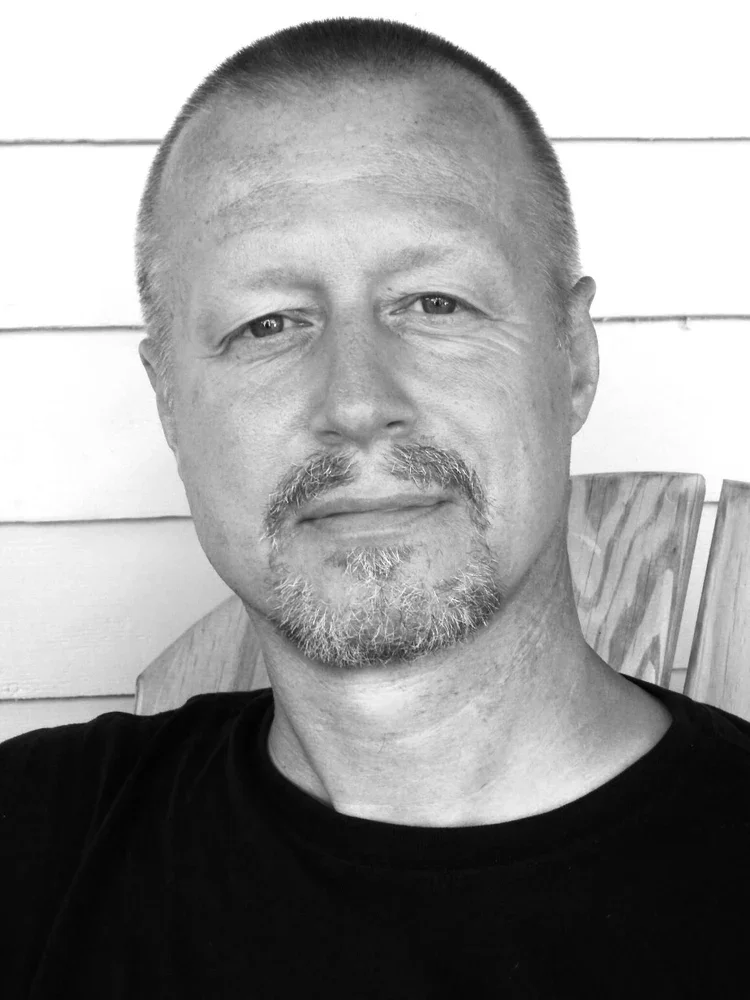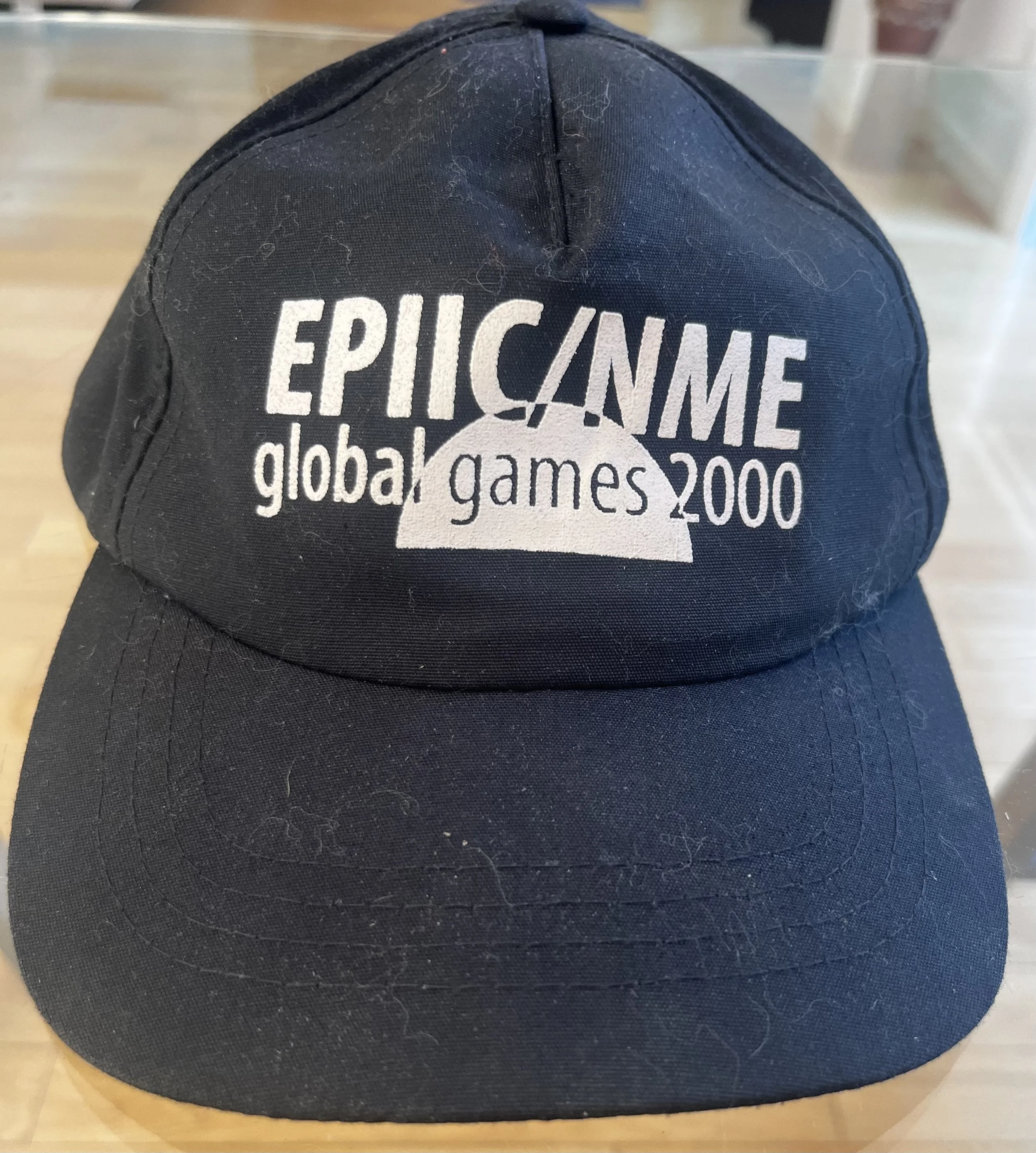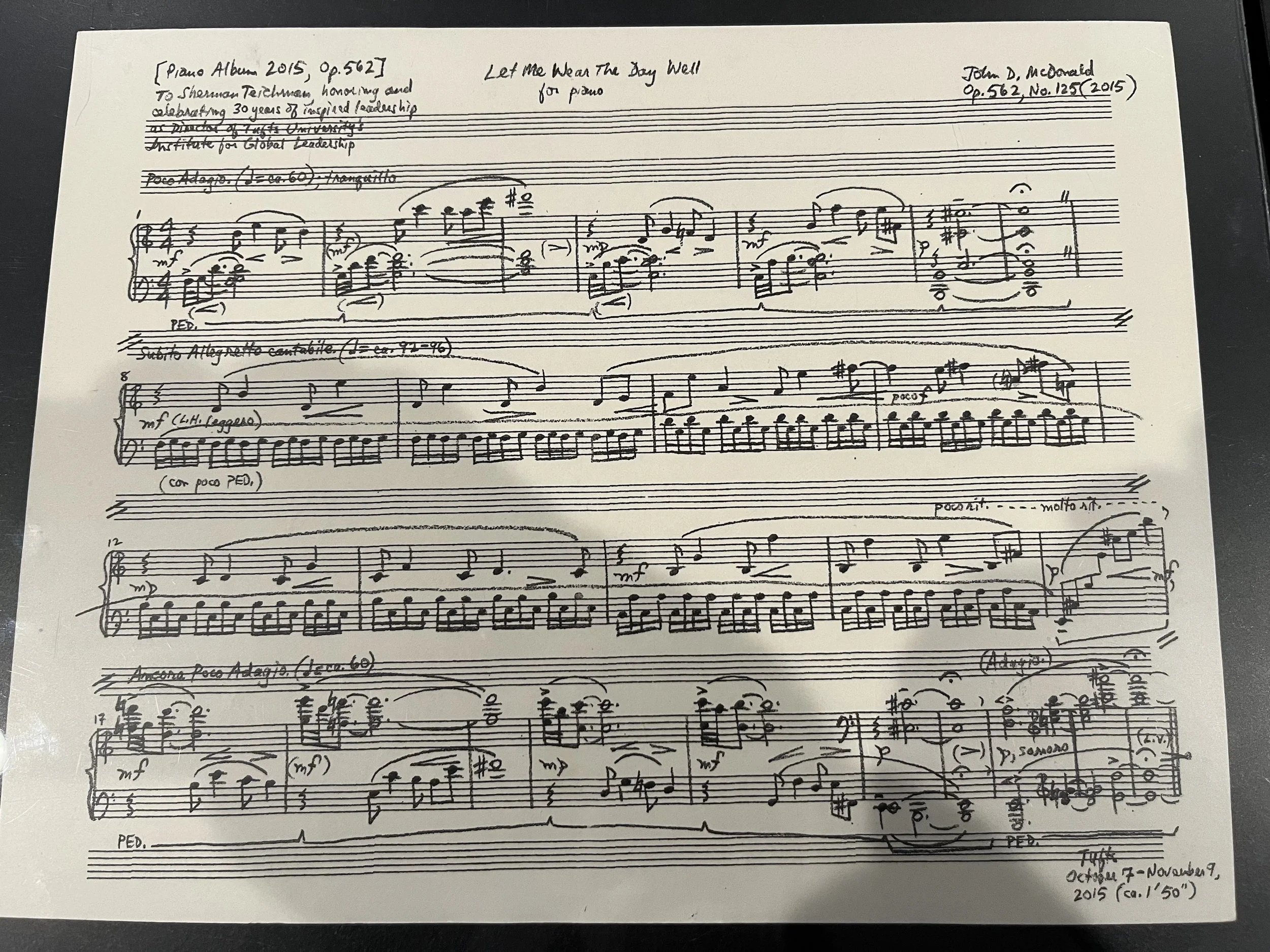John Miller
John is an accomplished and deeply committed international educator whose life and career reflect a rare blend of intellectual curiosity, moral purpose, and steady, humane leadership. Raised in Central New Jersey, he developed an early interest in the wider world—an interest that would grow into a lifelong vocation dedicated to education across cultures and borders.
He earned his B.A. in International Relations from Tufts University, including a formative year of study at the National Autonomous University of Mexico. During his time at Tufts University, Heather and I were fortunate to have him as an outstanding student and an active participant in the Institute for Global Leadership's Militarization of the Third World colloquium year and ensuing symposium. He has told us that the rigor of that work, the seriousness of the questions it posed, and the community it created profoundly shaped his worldview, which left a lasting imprint on his thinking and values.
Upon graduating from Tufts in 1990, John joined the very first cohort of Teach For America, committing himself early to teaching in under-resourced public schools in the United States. This formative experience grounded his idealism in practice and affirmed his conviction that schools are among the most important institutions in any society. In 1997, he entered international education as an elementary teacher at the American School of Durango in northern Mexico. His leadership abilities quickly became evident, and after two years, he was selected as Headmaster, a role he held for six years, guiding the school with vision, warmth, and an abiding commitment to student-centered learning.
In 2005, John returned to his alma mater, Rutgers Preparatory School, as Middle School Principal, bringing with him the perspective of an educator shaped by both domestic and international experience. In 2014, he moved to Brazil to become Head of the Barra da Tijuca campus of the Escola Americana do Rio de Janeiro, where he further honed a leadership style marked by cultural fluency, high expectations, and deep respect for students and educators.
John joined Eton School in Mexico City as Headmaster in 2021, following its acquisition by Nord Anglia Education, a global organization operating more than 90 private schools worldwide. Under his leadership over the past five years, Eton has grown to nearly 2,000 students while remaining steadfastly committed to its founding mission: offering a joyful, rigorous, and globally minded education. As the school has expanded in size and scope under his leadership, he has remained vigilant in preserving Eton’s culture of care, joy, and meaningful engagement, ensuring that growth never comes at the expense of student experience.
At Eton, John has been a strong advocate for immersive, experiential learning, a hallmark of the IGL, expanding opportunities for students to learn beyond the classroom through travel, cultural exchange, and place-based education. These programs encourage students to engage deeply with local communities, languages, histories, and global challenges—helping them develop empathy, independence, and a lived understanding of the world they are preparing to lead. John has championed educational trips and international experiences not as add-ons, but as integral components of learning—moments where academic knowledge, personal growth, and global awareness converge. John believes deeply that the most important work in the world is done in schools and has a firm belief in education as a bridge between societies, rather than a barrier among them. Whether through regional immersion, international travel, or interdisciplinary project-based learning, his vision emphasizes curiosity, connection, and reflection. He considers himself fortunate to have served in such a wide range of educational contexts and to have learned from diverse communities across countries and continents. As of this entry, the latest trip that he will lead will be to. TANZANIA?
I am honored that John continues to look forward to engaging with the Trebuchet community and to exploring meaningful ways to connect his work in international education with our shared broader efforts to build bridges, not walls. I think of him as an extraordinary teacher and leader.
In his personal life, he is most often found traveling with his family on long road trips or reading quietly, with a strong cup of coffee always within reach—small rituals that mirror the curiosity and reflection he seeks to instill in the students and schools he leads. Our personal connection has endured as he wonderfully hosted Iris and me recently in Mexico City.
Dr. Fareed Mustafa Kamil Yasseen
Dr. Fareed Mustafa Kamil Yasseen stands among the most remarkable figures of our time: a bridge between science, diplomacy, and moral courage. Born in Baghdad in 1956 to a distinguished family—his father a diplomat, his mother a university professor—Fareed’s roots reflect intellectual curiosity and a deep commitment to public service.
Educated in Iraq and abroad, Fareed graduated from Baghdad College before pursuing higher studies in Switzerland. He earned a diplôme d’ingénieur physicien and then a Ph.D. in physics from the École Polytechnique Fédérale de Lausanne. His early career was grounded in scientific research in Europe and the United States, where his work in theoretical plasma physics touched on the frontiers of fusion energy and space science.
Yet Fareed’s path transcended the laboratory. In the 1990s, driven by his profound concern for justice, he turned toward activism. He co-founded the Center for the Disappeared, dedicating himself to honoring the memories of Iraqis who vanished under repression. He brought his technical expertise to the United Nations, where, at the Secretariat of the UN Framework Convention on Climate Change, he spearheaded pioneering efforts in internet-based communication—laying groundwork that would later be central to global climate diplomacy.
In 2004, in the throes of a new Iraq, Fareed joined the Ministry of Foreign Affairs. From head of policy planning to diplomatic adviser to Deputy President Adil Abd al‑Mahdi, his role in shaping Iraq’s political reconstruction was instrumental. In 2010, he was appointed Ambassador to France, and later, in 2016, Iraq’s Ambassador to the United States—where he navigated extraordinarily difficult terrain, advocating with grace, firmness, and a visionary sense of reconciliation.
Beyond his diplomatic successes, Fareed has also championed Iraq’s cultural heritage. His efforts helped secure the return of thousands of ancient artifacts, including invaluable cuneiform tablets, illustrating how his loyalty to his homeland is matched by his drive to preserve its soul.
He has earned international recognition for his multifaceted contributions: he is a Member of the American Physical Society and the International Institute for Strategic Studies, he received the Robert and JoAnn Bendetson Public Diplomacy Award from Tufts University, and France bestowed on him the rank of Commander of the National Order of the Legion of Honor. More recently, he has served as Iraq’s Climate Envoy, advising on sustainable development at the highest levels.
Beyond his accomplishments on the global stage, it is the qualities of his character that shine most brightly. Fareed has insisted that I am the guilty party for detouring him from a meaningful academic and scientific career as a physicist by inviting him to an EPIIC symposium on confronting political and social evil and others on religion, politics, and society, and yet another on the Politics of Fear. He has been a wonderful friend and confidant, introducing me to significant figures in the Iraqi struggle for democracy and civil society throughout the Arab world. He is beloved for his humane instincts, unusual candor for a diplomat, and his warm personality. Through Fareed, I have promised several thousands of books, when I permanently retire, from my library to the University of Mosul, which was destroyed during the Saddam Hussein regime, later closed by ISIS in 2014, and suffered further losses from airstrikes during the liberation of the city in 2016–2017.
In every role—scientist, activist, diplomat—Fareed Yasseen has embodied a rare synthesis of intellect, integrity, and compassion. His life’s work is not only a testament to his own character but a beacon for all who believe in the power of ideas, dignity, and the possibility of a better future.
Alfred Ironside
Alfred Ironside was appointed vice president for communications at MIT in February 2020. He serves as chief communications officer for the Institute and advises the president and other senior leaders on the most effective ways to support and promote MIT’s work and its reputation around the world.
Before joining MIT, Ironside served as vice president for global communications at the Ford Foundation, one of the world’s largest and most accomplished philanthropies. In that role, he oversaw the foundation’s executive communications, messaging, strategic partnerships, and public affairs. Previously, he served the Ford Foundation as director of strategic communications. In more than 14 years with the foundation, he helped transform it into one of the most visible and influential voices for social justice in the United States.
Prior to his work at the Ford Foundation, he served as chief of media relations for UNICEF. Traveling to more than 40 countries, he acted as the United Nations’ spokesman on issues affecting children and women amidst conflict and natural disaster. Earlier, he spent three years in the US Diplomatic Service as a press officer in East Berlin, where he won commendation for his work during the Berlin Wall crisis, and four years as a spokesman with the American Red Cross.
Ironside began his career as a news reporter at radio stations in and around Indianapolis and Philadelphia. In the early 1990s, he helped launch the first Western advertising agency in Bulgaria and served as its managing director. He was later a member of the editorial team that launched the English edition of Ha’aretz, Israel’s leading newspaper, in conjunction with the International Herald-Tribune.
A native of Philadelphia, Ironside holds degrees in both political science and journalism from Butler University in Indianapolis, and a master’s in media administration from the Newhouse School and the Graduate School of Business at Syracuse University.
James Intriligator
James Intriligator is a human factors engineer, designer, neuroscientist, and strategic innovator who treats AI not as a novelty, but as a new kind of thinking instrument. Trained as a cognitive neuroscientist at Harvard and seasoned in venture capital and high-tech consulting, he has spent three decades gliding across neuroscience, psychology, consumer psychology, systems design, behavior change, and civic innovation. James spent several decades developing new tools and methods (such as Multidimensional Task Analysis and Persona Multiplication) that help others develop innovations by looking through-and-across (“transversing”) dimensions, opportunities, and constraints. For James, large language models have become “transversal gliders” – tools that let him explore vast problem terrains, stitch together unlikely domains, and help others see design opportunities they did not know were there.
At Tufts, he is Professor of the Practice and Director of Strategic Innovation in Mechanical Engineering, where he has helped grow human factors from a niche program into a thriving ecosystem of undergraduates and master’s students. Through the IDEA Lab and IDEA Lab @ Fletcher, he now convenes more than 120 students from over ten majors and nearly every school at Tufts – engineering, arts and sciences, nutrition, medicine, and The Fletcher School – plus students from other universities and even high schoolers. They work on moonshot projects that range from refugee data infrastructures and climate resilience to assistive technologies and democratic innovation, with several efforts moving toward patents and commercialization and supported by an emerging open-source IDEA Lab toolkit for replication anywhere.
James is also a builder of bridges between universities, industry, and the public sphere. He has helped bring in more than $1.1M in external funding from agencies such as the Navy, Army, Air Force, DHS, FAA, and the Missile Defense Agency, as well as partners like Triton Systems, IDSS, Oculus Research, and Bose. His patents range from self-synchronizing animations to space-weather prediction techniques, and he is actively working with colleagues and technology transfer teams on IP strategies for a new generation of inventions. Alongside this, he has served as an innovation catalyst and consultant to companies from consumer goods, to banks, to AI-rich platforms, helping teams reframe problems, surface non-obvious opportunities, and move ideas toward market.
Pedagogically, James is an internationally recognized educator: HEA National Teaching Fellow, Vice-President (USA) of the International Federation of National Teaching Fellows, FRSA, winner of Tufts’ Teaching with Technology award, and repeatedly shortlisted for university-wide teaching honors. His course and professor evaluations are consistently high, and student comments describe him as “one of the most incredible professors at Tufts,” “a master who wants to share his knowledge,” and “a great professor and an even better human.” In recent years he has become a key voice helping colleagues and students use AI responsibly, delivering talks and workshops on ChatGPT, generative AI, and the future of innovation across Tufts and international teaching-fellow networks.
Beyond the lab and classroom, James works in what he calls “transversal design” – moving fluidly across art, technology, and social justice. He co-created the computer visuals for the touring Transversal Media works “Curie, Curie!” and “The Passage,” and he is developing a book on transversal design that weaves together design methods, ethics, and AI-enabled creativity. His civic and democracy work includes Education and Democracy United (EDU) and a wide array of collaborations on food systems, environmental justice, and public-interest technology. Colleagues and students repeatedly turn to him for something specific: the ability to listen carefully, traverse multiple domains at once, and surface ideas that make people say, “I hadn’t thought of it that way—but now I can’t unsee it.”
Sherman Notes: James and I have formed a uniquely productive and powerful professional relationship, centered around his distinctive, imaginative creativity, and Trebuchet projects. It is so importantly a far more personal bond, forged ironically remotely, with extensive Zooms and remote conversations over months of conversation and wild gliding voyages, during my infirmity, subsequent spine operation, and now extended recovery. We have so much in common. His warmth, and decency, his infectious good nature and ability to extend cannot be explained.
It is visceral and deep. I met him only once thus far in person! He arrived with his delightful wife, Susanne, an Episcopalian Minister, one frigid late November night, at 10:30PM, toting a Zero Gravity chair to help me relax and prepare for my operation.
James is an irresistible, brilliant guy with the rare, long sought-after, “heart of gold!” I am so fortunate.
James Notes: I met Sherman through a chance introduction—and it felt a bit like stepping through a hidden door. A wonderful, empowering, and playful door into creativity and exploration. Sherman doesn’t simply have ideas; he seems to live inside an atmosphere of them: a buzzing cloud of depth, possibility, invention, rigor, and unusually good-natured humanity. Around him is a remarkable constellation of people—serious, curious, capable—each carrying their own lived experience and moral weight, and each somehow more reachable because Sherman makes the space hospitable. That ecosystem—Trebuchet and Convisero—feels like an Aladdin’s cave of civic intelligence: not just relationships, but resources, histories, and latent initiatives waiting to be activated. What excites me is not just the awesome people. Nor is it the “networking” in the usual sense; it’s the possibility of mobilizing this community into real artifacts and projects—briefs, curricula, convenings, prototypes, partnerships—that can travel outward and compound impact. I’m honored Sherman invited me in, and I’m genuinely looking forward to meeting others and contributing to help the community stay coherent, alive, generative, and able to turn conversation into action.
Anjan Sundaram
Anjan Sundaram is an award-winning journalist and author of the memoirs Stringer, Bad News, and Breakup. Described by BBC’s Fergal Keane as “one of the great reporters of our age,” his work has been featured by Christiane Amanpour, Fareed Zakaria, and Jon Stewart. He writes regularly for The New York Review of Books and Granta, and his reporting has illuminated untold stories from war zones and fragile communities worldwide.
A Yale mathematics graduate with a PhD in journalism from the University of East Anglia, Sundaram’s reporting has consistently highlighted the intersection of conflict, humanity, and truth. His 2024 MainStage TED Talk, Meet Our Planet’s Hidden Defenders, showcased indigenous communities safeguarding the world’s last ecosystems, sparking the vision for The Stringer Foundation (TSF).
The Stringer Foundation (TSF)
Founded in 2024, TSF is the first global journalism initiative dedicated to building a sustainable livelihood and community for courageous freelance reporters. Its mission is to:
Stabilize journalists through financial support, fellowships, shelter, and resources.
Amplify stories via a media aggregation platform and legacy partnerships.
Drive solutions by linking journalism to NGOs and institutions that can act on crises exposed in the field.
TSF envisions creating a Nobel Prize–style journalism award, scalable fellowships, and a global support ecosystem. Its model is designed to counter the decline of independent reporting in an era of authoritarianism, disinformation, and organized crime.
Advisory Network
Sundaram is joined by advisors including Kristine Tompkins (Patagonia), A.G. Sulzberger (The New York Times), Tina Brown, Oleksandra Matviichuk (Nobel Peace Prize laureate), and other global leaders across journalism, philanthropy, and human rights.
Watch his TED Talk: Meet Our Planet’s Hidden Defenders
Prince Raj
Prince Raj is an undergraduate law student at Sai University, Chennai. He recently completed his summer internship in the Office of the Solicitor General of India at the Supreme Court of India. He completed his schooling at Sainik School Tilaiya, a premier institution under the Ministry of Defence, Government of India. Inspired by his early experiences with communities affected by mineral extraction and poverty, Prince chose to pursue law with a focus on advancing social justice.
His academic interests lie at the intersection of energy law and human rights, with a particular focus on nuclear energy law and non-proliferation. He is deeply engaged in research on the social and environmental consequences of nuclear radiation, especially in Jaduguda, the site of India’s first uranium mine. At the same time, he recognizes the transformative potential of nuclear technology, particularly Small Modular Reactors, in shaping the future of sustainable energy. He has served as the Chief Student Coordinator for the 10th Nuclear Energy and Law Training Programme organized by the Nuclear Law Association of India.
Beyond academics, Prince is an active poet, known for his thought-provoking recitals that blend creativity with social commentary. He is also a sports enthusiast and athlete, with a passion for football and volleyball.
David Chanoff
David Chanoff received his B.A. from The Johns Hopkins University and his Ph.D. in English and American Literature from Brandeis University. He has written on current affairs, foreign policy, education, refugee issues, literary history, healthcare and other subjects for such publications as The New York Times Magazine, The Wall Street Journal, The New Republic, The Washington Quarterly, The American Journal of Education, Medscape, The New York Review of Books, The Washington Post, and The American Scholar. He is a featured writer in the Washington Post’s anthology The Writing Life and his work appears in the Norton Reader Anthology of Nonfiction (12 th edition). His academic affiliations have been with Tufts University, The Helsinki University of Technology, Boston College, and Brandeis University in fields as varied as psychology, English language and literature, and anthropology. His twenty-six books include collaborations with former surgeon general Dr. Joycelyn Elders, healthcare disparities expert Dr. Augustus White, former Israeli prime minister Ariel Sharon, former chairman of the Joint Chiefs of Staff Adm. William Crowe and former secretary of health and human services Dr. Louis Sullivan. Several of his books have been included among the New York Times Notable Books of the Year. Among his more recent publications, his collaboration with Louis Sullivan [Breaking Ground] was named the NAACP’s Best Biography/Autobiography of 2014. Spies in the Family (with Eva Dillon) received the Association of Former Intelligence Officers award as Best Intelligence Book of 2017.
We’ll Fight It Out Here, a history of Black health and healthcare going back to pre-emancipation times, was published by The Johns Hopkins University Press in October, 2022 and received the 2023 Phillis Wheatley prize for history from the Sons & Daughters of the U.S. Middle Passage. Anthony Benezet: Quaker, Abolitionist, Anti-Racist, about the 18th-century Philadelphia Quaker who led the campaign against the Atlantic slave trade, will be published by the University of Georgia Press in 2025. From Crisis to Calling, a collaboration with his son Sasha, is about moral decision-making at critical moments of life. Dr. Chanoff is currently a visiting research scholar at Brandeis University.
Sohinaz Sotoudeh
Sohinaz Sotoudeh is a distinguished leader in the global energy sector whose career exemplifies innovation, strategic foresight, and an unwavering commitment to sustainable development.
As Senior Vice President and Head of Development and Origination at Diamond Generating Company, Sohinaz has been at the forefront of transforming the energy landscape, guiding the company’s efforts to identify, structure, and deliver groundbreaking power assets into operation. These assets span the spectrum of energy technologies, from natural gas generation to wind, solar, solar-plus-storage, and advanced standalone storage systems—projects that are not only reshaping markets but also addressing the urgent challenges of energy transition.
Known to us as "Sunny" when she was my student in our EPIIC colloquium, International Security: The Environmental Dimension (1992) at the Institute for Global Leadership at Tufts, her disposition easily reflected her name. While light-hearted and warm in demeanor, she was clearly a serious and thoughtful student, and I enjoyed our conversations and her challenging questions.
She graduated with honors in economics from Tufts University, and subsequently earned her MBA in Finance from Columbia University's Business School.
Her career which bridges finance, innovation, and global energy leadership reflects a remarkable progression through some of the most dynamic organizations in the field.
At EDF Renewables North America, Sohinaz directed power marketing and transactions, negotiating complex power contracts and acquisitions that strengthened renewable energy deployment across the continent. Earlier, as Vice President of Business Development at Ogin Energy, she helped shape the company’s wind development strategy and led strategic acquisitions. Her career foundation was built at GE Capital’s Equity Capital Group, where she evaluated and supported venture capital investments in energy technology start-ups, sharpening her ability to recognize and cultivate transformative opportunities.
Known for her clarity of vision, her ability to bridge financial acumen with technological innovation, and her deep commitment to advancing sustainable solutions, Sohinaz represents the very best of what leadership in energy can achieve.
She is celebrated not only for her professional achievements but also for her role as a mentor, collaborator, and forward-thinking voice in a rapidly evolving global industry.
Sunny's specific remarkable trajectory might not have been knowable, to either of us, in the early 90's. Yet the environmental dilemmas were overt, as was her determination and ambition to contribute to global sustainable progress. She has succeeded.
Fred Hogan
Fred Hogan’s life has been defined by service, honor, and an unwavering pursuit of justice. A veteran of the United States Army, he was shaped by the discipline and values of military service — resilience, loyalty, and responsibility — which became guiding principles in his civilian life. After returning home, Hogan joined the New Jersey police force, where he quickly earned a reputation for diligence and integrity. Yet it was also during this time that he began to recognize the flaws and contradictions of the criminal justice system. He saw how prejudice, shortcuts, and institutional pressure could distort truth, and these observations planted the seeds for the transformative career shift that would define his legacy.
Hogan left the badge behind to become a senior investigator with the New Jersey Office of the Public Defender. In this role, he crossed from enforcing the law to defending its integrity, devoting himself to uncovering wrongful convictions and ensuring that the most vulnerable defendants received a fair hearing. His transition was not just professional but moral, embodying his belief that true justice required confronting the system’s failures head-on rather than ignoring them.
It was in this work that Hogan became deeply involved with one of the most infamous cases of wrongful conviction in American history — that of Rubin “Hurricane” Carter and John Artis, wrongfully convicted of a 1966 triple murder in Paterson, New Jersey. Hogan’s investigative persistence and refusal to accept easy answers made him a critical figure in the decades-long struggle for their freedom. He uncovered inconsistencies in witness testimony, gathered new evidence, and ultimately testified at Carter and Artis’s 1976 retrial, introducing his own handwritten notes that exposed the prosecution’s case as a fabrication. In his acclaimed biography Hurricane: The Miraculous Journey of Rubin Carter, author James S. Hirsch underscored Hogan’s importance, quoting Carter as saying, “Without Hogan, I would have died in prison.” Hirsch himself affirmed that Hogan was “instrumental in helping Rubin and John Artis win their freedom,” a testament to the magnitude of his contribution.
Hogan’s relationships with Carter and Artis grew beyond the courtroom into enduring friendships, binding him personally as well as professionally to their cause. These experiences deepened his commitment to justice and broadened his voice in debates over wrongful conviction and the death penalty. His credibility and moral clarity earned him appointments to the New Jersey Supreme Court’s District III Ethics Committee and the state’s Wrongful Conviction Review Board, where his unusual perspective — shaped by his service as a soldier, a policeman, and a defense investigator — gave him authority as both a critic and a reformer.
Hogan also carried his advocacy into the classroom and the public square. At Tufts University, he was invited to speak on the death penalty, where he delivered a powerful lecture that combined legal insight with personal witness. Students and faculty alike were struck by his candor, his storytelling, and the moral urgency of his message. His ability to bridge the professional and the personal, the systemic and the human, made him not only a practitioner of justice but also a teacher of it.
In 2019, Hogan chronicled his extraordinary journey in the book Justice on the Ropes. Both a memoir and a call to action, the book detailed his military service, his time in law enforcement, his investigative work, and his friendships with Carter and Artis. The launch of the book at Brookline Booksmith I organized, was more than a literary event — it was a celebration of a life devoted to truth, a gathering of advocates, students, and citizens inspired by his story and determined to continue the fight against injustice.
Through every chapter of his life — soldier, policeman, investigator, advocate, and author — Fred Hogan has exemplified courage, integrity, and empathy. His work with Rubin Carter and John Artis not only helped overturn one of the most notorious wrongful convictions in American history but also demonstrated the power of one individual’s determination to confront systemic failure. His story stands as both a cautionary tale about the fragility of justice and an enduring example of what can be achieved when conscience and courage prevail.
Fred is a true, humble, and noble man. He wins the respect and admiration of everyone he meets. I am greatly privileged to know him.
Dan Feldman
Dan Feldman co-chairs the firm’s ESG and Business & Human Rights practices, where his work focuses on environmental, social, and governance (ESG) counseling, business and human rights (BHR), global public policy, and international regulatory compliance. A member of the firm’s Global Problem Solving initiative, he draws on extensive government service across multiple U.S. Administrations. As Chief of Staff and Counselor to Secretary John Kerry in his role as the first Special Presidential Envoy for Climate under President Biden, Dan helped drive the U.S. international climate agenda, coordinating interagency policymaking, engaging corporate stakeholders, and contributing to key bilateral and multilateral climate discussions, including the 2021 Leaders’ Summit on Climate and COP26 in Glasgow.
Previously, Dan served as Deputy and then U.S. Special Representative for Afghanistan and Pakistan at the State Department in the Obama Administration, as Director of Multilateral and Humanitarian Affairs at the National Security Council in the Clinton Administration, and as Counsel and Communications Adviser to the U.S. Senate Homeland Security and Governmental Affairs Committee. He also acted as a senior foreign policy and national security advisor to Democratic presidential and Congressional campaigns. Beyond government, Dan has counseled multinational corporations on ESG and sustainability strategies, with particular expertise in BHR, and was among the first U.S. attorneys to develop a corporate social responsibility practice, recognized by Chambers for his leadership in this field.
He has advised clients on engagement with Members of Congress, executive and foreign government officials, embassies, multilateral institutions, industry associations, NGOs, and the media. Dan also spent more than six years leading civilian efforts on Afghanistan and Pakistan at the State Department, holding the rank of Ambassador from 2014 to 2015. Currently, he is a partner at Akin Gump, a senior advisor at the Albright Stonebridge Group, and a nonresident senior fellow at the Center for American Progress.
Michal Fux
Dr. Michal Fux is a research scientist in the Department of Brain and Cognitive Sciences at the Massachusetts Institute of Technology. Her career has been marked by an unusual intellectual trajectory that links biology, animal behavior, cognitive science, and cultural studies.
She began her academic studies at the Hebrew University of Jerusalem, earning a degree in biology. From there she moved to Tel Aviv University for her master’s degree in zoology, where she developed expertise in careful behavioral observation and experimental approaches to the study of animals. This early grounding in zoology prepared her for the broader comparative perspective that would define her later work.
Dr. Fux pursued her doctoral research at Queen’s University Belfast, in the Institute of Cognition and Culture. Her dissertation explored cultural rituals as by-products of precautionary cognitive systems. The project combined evolutionary reasoning with cultural analysis, proposing that rituals — often viewed as symbolic or arbitrary — can be understood as rooted in the human mind’s ancient strategies for dealing with uncertainty, danger, and threat. Her research at Queen’s was recognized with competitive fellowships and travel awards, and she expanded her perspective further through time as a visiting fellow at the University of KwaZulu-Natal in South Africa.
Following the completion of her Ph.D., she continued her research as a postdoctoral fellow at the University of South Africa, and later moved to the United States to join Northeastern University. At Northeastern’s CORE Lab she worked on projects that examined cognition in cultural and educational contexts, contributing to both experimental research and the mentoring of students.
In 2022, Dr. Fux joined MIT as a research scientist. Her current work connects directly back to the themes that have long animated her scholarship: how cognition drives behavior, whether in humans performing rituals or in animals hunting prey. Her studies of barn owls, for example, have investigated how these birds track their targets and decide when to strike, offering insights into how perceptual systems support survival behaviors. Alongside this, she continues to examine ritual in human life as a window into precaution, memory, and the architecture of the mind.
Dr. Fux’s career, spanning Israel, the United Kingdom, South Africa, and the United States, reflects a consistent effort to cross boundaries between disciplines and institutions. At MIT, she continues to bring together biology, anthropology, and cognitive science to illuminate both the shared patterns and the distinctive complexities of behavior across species
Sindhuja Sankaran
Dr. Sindhuja Sankaran is an Associate Professor of Psychology and currently serves as the Associate Dean of the School of Arts and Sciences and Dean of Student Affairs at Sai University, Chennai, India. She earned her PhD from Cardiff University and spent eight years in Poland pursuing teaching and research. Her academic work focuses on political psychology, moral judgment, refugee rights, and their intersection with social cognitive processes. Outside academia, she is also an active musician and the founder of Rethinking Refugees, an NGO based in India dedicated to raising awareness and promoting advocacy around issues of migration, displacement, and statelessness.
Nandita Narayanan
Nandita Narayanan is pursuing a BSc in Biological Sciences at Sai University (2022–present). Her academic foundation spans microbiology, bioinformatics, neuroscience, and data analysis, complemented by hands-on training in microbe culturing techniques, PCR, gel electrophoresis, and data visualization.
She has presented research at the Bhabha Atomic Research Centre (BBC-2024), where her poster on microbial studies in Indian fermented food highlighted her interest in applied microbiology. Her laboratory experience includes an internship at the National Institute of Ocean Technology (NIOT), where she worked on isolation, sequencing, and identification of marine microbes, as well as analyzing ballast tank samples for microbial composition.
Nandita also gained industry exposure as a Field Nutrition Intern with Nestlé India, conducting market research and producing data-driven insights to improve product engagement. Her broader commitment to sustainability was strengthened through the Millennium Fellowship (UNAI & MCN), where she co-led a university waste and electricity management project aligned with SDGs 11 and 12.
Her early conservation experiences include interning with the Student Sea Turtle Conservation Network (SSTCN), where she cared for endangered Olive Ridley hatchlings and educated visitors, as well as documenting reptile behavior during an internship at the Guindy Snake Park. These experiences deepened her commitment to ocean sustainability and conservation.
Beyond academics, Nandita has been an active student leader: serving as Vice President of the Science Society and President of the Gardening Club at Sai University. She has also led campus projects in food microbiology and waste management, blending scientific inquiry with sustainability practices.
Nandita aspires to apply her background in life sciences to marine conservation, sustainability, and global health, with a vision of advancing research and awareness that bridges biology, environment, and society.
Anne Pratt
Anne Pratt is a Harvard fellow and multi-award-winning businesswoman who met Nelson Mandela and ran one of South Africa’s top executive search companies. A former Harvard Advanced Leadership Initiative fellow selected as one of 45 top leaders worldwide. She did a second fellowship at Harvard.
Originally from South Africa, Anne grew up in an anti-apartheid activist family. Anne worked closely with multi-listed and unlisted corporate boards, cabinet Ministers of the South African government, and non-profit Boards for decades including the Nelson Mandela Foundation. She interviewed and researched more than 10 000 leaders in Africa and internationally.
Pratt completed a degree in Economics, a post-graduate degree in Psychology, lectured in Psychology and leadership excellence in top South African Universities and business schools, and completed her MBA and board certification in Governance in premier business schools. Finance Week published her MBA thesis opinion.
Featured in the Who’s Who of South Africa, Anne is a member of the International Women’s Forum, consulted to multiple high-profile Boards including the Nelson Mandela Foundation, and invests in our younger generation of leaders in Africa and worldwide. In addition, Pratt features in the South African and American media.
Paul Jay
Paul Jay is a documentary filmmaker and journalist whose work has consistently exposed how power operates behind the curtain of spectacle and state. From the world of professional wrestling to Las Vegas casinos, from Afghan battlefields to Baltimore's streets and the halls of Congress, his films and journalism reveal the systems that shape human life.
Jay rose to international prominence with Hitman Hart: Wrestling with Shadows (1998), which granted unprecedented backstage access to the WWE and captured the infamous Montreal Screwjob. Acclaimed as "as bizarre as Kafka and as tragic as Shakespeare," it became one of the most-watched documentaries in history, broadcast worldwide and celebrated for exposing the ruthless power dynamics beneath the spectacle of sports entertainment.
Newsweek art critic Peter Plagens wrote:
“Pervasive, Baudrillardian postmodernism. Hall-of-mirrors trifles like This Is Spinal Tap, Natural Born Killers, The Truman Show, and The Matrix pale in comparison. Someday, in the middle of the 21st century, when they talk about the film that took today’s nearly unanimous intellectual assumption—that ‘reality’ (whatever that means, dude) is nothing but a series of socially constructed misidentities—and made it into a work of art, they’ll have to start with Wrestling With Shadows.”
Paul Jay admits that he has no idea what post-modernism is.
Building on this foundation, Jay expanded his lens to global politics with Return to Kandahar (2003), co-directed with Nelofer Pazira, documenting her journey back to Afghanistan after the fall of the Taliban. Blending personal narrative with geopolitical critique, the film won the Donald Brittain Gemini Award for Best Social/Political Documentary. It established Jay as a filmmaker unafraid to confront the consequences of empire directly.
His other films include Lost in Las Vegas (2001), an unflinching portrait of a city built on nothing but money — a neoliberal vision where celebrity, illusion, and finance merge into daily life; The Birth of Language (1991), exploring human evolution through interviews with anthropologist Sherwood Washburn and primatologist Jane Goodall; and Never-Endum Referendum (1997), chronicling the 1995 Quebec referendum that the Ottawa Citizen called "a moving, masterful piece of filmmaking."
Jay has also reported from the frontlines of the American struggle. He covered the 2015 Baltimore uprising following the death of Freddie Gray, connecting systemic poverty and police violence to the explosion of widespread anger.
This investigative approach carried into Jay's journalism, where he has reported from the frontlines of struggle and the corridors of power. As an accredited Capitol Hill journalist, he conducted groundbreaking interviews with dozens of members of Congress, including Senator Bob Graham, who chaired the Joint Congressional Inquiry into the 9/11 attacks. In an exclusive on-camera interview, Graham accused the Bush–Cheney administration of deliberately obstructing U.S. intelligence agencies in ways that prevented the 9/11 attacks from being averted — a statement Jay is the only journalist known to have captured on film.
His interview subjects have ranged from Bernie Sanders and Zbigniew Brzezinski to Noam Chomsky, Daniel Ellsberg, John Bolton, and former Congressman Ron Paul, from Trump advisor Stephen Miller to cultural figures like Gore Vidal and Emma Thompson. When WikiLeaks' founder Julian Assange was arrested in London, he was carrying Jay's book Gore Vidal's History of the National Security State — a photograph published by news media worldwide.
Jay also hosted the acclaimed interview series Reality Asserts Itself, known for in-depth, multi-part conversations that explored not only what guests believed, but how their life experiences shaped their worldview. Beyond journalism, he founded the international festival Hot Docs, now one of the world's major documentary festivals, and created CounterSpin, a daily prime-time debate show on CBC Newsworld that ran for ten years and helped reshape political television in Canada.
His current project, How to Stop a Nuclear War, narrated by Emma Thompson, brings together decades of investigation into war, secrecy, and empire. Based on Daniel Ellsberg’s The Doomsday Machine: Confessions of a Nuclear War Planner and a wide archive of exclusive interviews with policymakers, whistleblowers, scientists, and activists, it traces the roots of nuclear escalation from the Manhattan Project through the Cold War to today’s AI-driven command-and-control systems. The film not only exposes the profiteering and manufactured threats that sustain nuclear escalation but also explores concrete steps to reduce the danger — from eliminating ICBMs and adopting no–first-use policies to reviving arms-control treaties and curbing launch-on-warning. It will also demonstrate how the intensifying climate crisis exacerbates the risk of nuclear war, and why addressing both threats is crucial to survival.
Jay has recently spoken about How to Stop a Nuclear War at the Nobel Peace Centre in Oslo and the Perugia Journalism Festival in Italy. He will also be presenting the project at the University of Massachusetts, The Voice at the 2025 EMERGENCY Festival in Reggio Emilia, Italy, and at the Outrider Nuclear Reporting Summit in Arkansas.
Jay spent three years driving for the Post Office, five years as a carman mechanic with the Canadian National Railroad, ran a nonprofit record store, and picked up dead animals from farms for dog food processing. He didn’t go to university because he believed nuclear war would come first — he was a teenager during the Cuban Missile Crisis.
Jay is currently at work on a book titled Aina and Me, exploring consciousness and human–AI partnership through his interactions with artificial intelligence. His work also challenges the militarization and surveillance of AI, arguing that its future must be shaped through public ownership and democratic control rather than profit-driven or authoritarian agendas.
He is also the father of 13-year-old twins and spends much of his time driving to hockey games and gymnastics.
I met Paul when he was introduced to me by an alum and close friend, James Hershberg as someone who might be involved in helping to create a curriculum for his documentary - How to Stop a Nuclear War, based on the recollections and interviews with famed whistleblower, Daniel Ellsberg, the author of The Doomsday Machine. This is what he had his staff write me:
We would be honored to speak with you as part of our documentary on nuclear weapons and international security. Your pioneering work in founding and directing the Institute for Global Leadership at Tufts, particularly the EPIIC symposia that brought together science, ethics, and global security—most notably on nuclear proliferation and "Our Nuclear Age"—provides a rare synthesis of educational innovation and real-world insight.
I have agreed to help direct this project, through, in part, my network as an external advisor for the International Student Youth Pugwash, the winner of a previous Nobel-prize for Peace. I am suggesting Paul as an INSPIRE Fellow for the 40th Anniversary given his eclectic knowledge and deep experiences.
The thinking of developing a curriculum makes me smile broadly as I remember Heather being the prime contributor to a curriculum we developed as a part of the 1988 covert action and democracy year, led by the extraordinary educator Steve Cohen. Steve wrote in the acknowledgements, “Heather Barry, a student in the class served as the chief researcher and content consultant for this project. Her assistance, advise and humor were invaluable.” I first met Dan at that EPIIC Symposium, who subsequently enabled me to become a wonderful contributor to other common projects.
How to Stop a Nuclear War picks up where the films The Day After and Oppenheimer left off. The compelling narrative unfolds as a gripping political thriller, unveiling the stark realities of present-day dangers and the little-known history of the "institutional madness" that has led us perilously close to the edge. Viewers will be shocked but not into paralysis.
The documentary makes it clear that a nuclear apocalypse is not inevitable. We aim to catalyze a movement and inspire a rational discussion amongst policymakers - before it’s too late. There are concrete steps that can be taken to reduce the risk of nuclear war.
We have completed forty hours of interviews with Dan and secured participation from numerous distinguished experts, including the following: Alan Robock, Alex Wellerstein, Andre Gagne, Andrew Cockburn, Andrew Reddie, Barbara Slavin, Ben Rhodes, Bruce Cumings, Charlie Savage, Christian Appy, Cole Smith, Daryl Kimball, David Gibbs, Emma Belcher, Emma Claire Foley, Frank von Hippel, Fred Kaplan, Hugh Gusterson, Igor Pimenov, Ira Helfand, Jack Blum, Jackie Grace Schnedier, James Bamford, James Hershberg, James McKeon, Jamie Kwong, Gov. Jerry Brown, John Bellamy Foster, John Mecklin, Jonathan Katz, Jon Wolfsthal, Julie George, Kai Bird, Laura Grego, Col. Lawrence Wilkerson, Mark Blyth, Mark Gubrud, Martin Hellman, Matt Korda, Matt Tyrnauer, Matthew Gentzel, Melissa Parke, Michael Klare, Morton Halperin, Nicholas Meyer, Nikolai Sokov, Norman Solomon, Paul Slovic, Paul Podvig, Peter Kuznick, Rep. John Garamendi, Ramana MV, Rana Foroohar, Richard Rhodes, Richard Sakwa, Robert Elder, Robert Kehler, Sen. Sam Nunn, Scott Sagan, Setsuko Thurlow, Sharon Weiner, Shizuka Kurimatsu, Stefania Maurizi, Susi Snyder, Tara Drozdrenko, Thomas Countryman, Thomas Ferguson, Thomas Gioconda, Timothy Nafali, Tom Collina, Tong Zhao, Tuva Krogh Widskjold, Ulrike Franke, W.J. Hennigan, Ward Hayes Wilson, William Astore, William Hartung, Zachery Kallenborn, and Zia Mian.
Meredith Rothbart
Meredith Rothbart is the Founder and CEO of Amal-Tikva, a collaborative initiative bringing together philanthropists, field experts, and organizations to strengthen civil society peacebuilding between Israelis and Palestinians. Since immigrating to Jerusalem in 2008, Meredith has dedicated her career to advancing dialogue, cooperation, and sustainable peace in the region.
She holds an MA in Community Development from Hebrew University and a BA in Politics, Philosophy and Economics from the University of Pittsburgh, and brings nearly 15 years of leadership experience with Israeli and Palestinian NGOs. Meredith previously served in the IDF Civil Administration, and her participation in an early leadership program for young Israelis and Palestinians inspired her lifelong commitment to peacebuilding.
Meredith has become an influential voice in the international policy and peacebuilding community. She has addressed the United States House Committee on Foreign Affairs, the White House, the Delegation of the European Union to Israel, and the United Nations Security Council, consistently advocating for the role of civil society in conflict transformation. She also serves on multiple advisory boards and was the founding curator of the Jerusalem Global Shapers Hub of the World Economic Forum.
In addition to her leadership at Amal-Tikva, Meredith is a strategic consultant, writer, and public speaker whose work has been widely recognized for advancing nuanced perspectives on the Israeli-Palestinian conflict.
She lives in Jerusalem with her husband and children, Shalva, Yishai, and Yona.
John Shattuck
Professor John Shattuck is a distinguished international legal scholar, diplomat, and human rights leader with a career spanning over four decades. His professional journey began in the early 1970s as a law clerk in New York, before transitioning into academia as a visiting lecturer at Princeton University’s Woodrow Wilson School of Politics. He later served as National Staff Counsel at the American Civil Liberties Union (ACLU), where he worked on key federal court cases, including the successful challenge to Nixon's warrantless wiretapping program, Halperin v. Kissinger. In the late 1970s, Shattuck was appointed the director of the ACLU’s Washington office, where he led lobbying efforts on civil rights and liberties during the Carter and Reagan administrations.
Shattuck’s academic and diplomatic careers are equally distinguished. In 1986, he returned to academia at Harvard University as Vice President for Government, Community, and Public Affairs, while also teaching law courses at Harvard Law School. His involvement with the Kennedy School of Government further strengthened his role in public policy. He was later appointed by President Bill Clinton as Assistant Secretary of State for Democracy, Human Rights, and Labor, where he played a pivotal role in the establishment of the International Criminal Tribunals for Rwanda and the former Yugoslavia, and negotiated the Dayton Peace Agreement that ended the war in Bosnia. Shattuck also served as U.S. Ambassador to the Czech Republic, where he helped modernize the country’s legal system and supported civic education programs.
In 2001, Shattuck became the CEO of the John F. Kennedy Library Foundation, where he oversaw the digitization of historical records and significantly increased the foundation’s endowment. From 2009 to 2016, he served as the President and Rector of Central European University (CEU), transforming the institution into a globally recognized center for graduate education. Under his leadership, CEU expanded its interdisciplinary programs, launched the School of Public Policy, and created the Roma Access Programs, which are unique graduate preparation initiatives for Roma students. Shattuck also led the university through significant growth in research funding and faculty recruitment.
Shattuck’s legacy at CEU continues through the Shattuck Center on Conflict, Negotiation, and Recovery, named in his honor after his retirement. In addition to his work at CEU, Shattuck is currently a Professor of Practice at the Fletcher School of Law and Diplomacy and a Senior Fellow at Harvard University’s Kennedy School Center for Human Rights Policy. He is a frequent author of articles on international relations, human rights, civil liberties, and public service, and has written three books, including Freedom on Fire, a study of the international response to genocide in the 1990s.
A graduate of Yale Law School, Shattuck has received multiple honorary degrees and prestigious awards, including the Yale Law School Public Service Award, the Ambassador’s Award from the American Bar Association, and the Jean Mayer Global Citizenship Award from Tufts University. He has also been elected to the American Academy of Arts and Sciences. Shattuck’s extensive career in government service, academia, and diplomacy, along with his lifelong commitment to advancing human rights and civil liberties, has left an indelible mark on international relations and higher education. He continues to contribute to the field through his academic roles and advocacy for democracy, human rights, and the protection of privacy.
John has been a wonderful friend for decades. As an educator and teacher I can say with humility that he far surpasses me. I know this because my son, Nathaniel, as a Tufts undergraduate, took a seminar on US foreign policy at the John F. Kennedy Center in Boston, which John directed. One of the sessions was a simulation about the Cuban Missile Crisis. Nathaniel was given the role playing position of Kennedy’s advisor Theodore Sorenson, which he found to be one of the best days of his academic career. He prepared rigorously for the idea that he would be in a replica room of the President, with others that were making the decision whether or not to bomb Cuba. (Nathaniel and I agreed that he would not take any of my classes, it could have been too stressful for both of us :)) John participated in many of my forums, always provocatively and thoughtfully. He could create tremendous excitement in a very soft-spoken but erudite manner. I had the privilege and honor of working with John and our close friend Richard Balzer, on the memorial Petra Foundation, in honor of John’s first wife, an extraordinary effort to acknowledge remarkable heroes of marginalized communities, ranging from anti-death penalty activists to indigenous rights activists.
John was one of my first interviewees when I worked for the Council of European Studies and its publication EuropeNow. I interviewed him on the future of democracy and threats to democracy. Then, as always, he is a prescient thinker and knew firsthand of the threat when the Hungarian authoritarian prime minister Orbán sadly succeeded in forcing the relocation of the George Soros founded Central European University. John last spoke for me when I secured him as the keynote speaker for “Democracy on the Precipice”, an EPIIC “revival” after 10 years of my absence in 2025. Attending his keynote was a sort of homecoming for me. He began by acknowledging my impact.
John Shattuck and I served together as Senior fellows at the Carr centre for human rights at Harvard.
James Lindsay
James M. Lindsay is the Mary and David Boies distinguished senior fellow in U.S. foreign policy and director of Fellowship Affairs at the Council on Foreign Relations (CFR). His work at the Council focuses on U.S. national security policy, the U.S. foreign policymaking process, the domestic politics of U.S. foreign policy.
From 2009 to 2024, Lindsay was senior vice president, director of studies, and Maurice R. Greenberg chair at CFR, where he oversaw the work of the more than six dozen fellows in the David Rockefeller Studies Program as well as CFR’s fourteen fellowship programs. Before returning to CFR in 2009, Lindsay was the inaugural director of the Robert S. Strauss Center for International Security and Law at the University of Texas at Austin, where he held the Tom Slick chair for international affairs at the Lyndon B. Johnson School of Public Affairs. From 2003 to 2006, he was vice president, director of studies, and Maurice R. Greenberg chair at CFR. He previously served as deputy director and senior fellow in the foreign policy studies program at the Brookings Institution. From 1987 until 1999, he was a professor of political science at the University of Iowa.
From 1996 to 1997, Lindsay served as director for global issues and multilateral affairs on the staff of the National Security Council. He has also served as a consultant to the United States Commission on National Security/21st Century (Hart-Rudman Commission) and as a staff expert for the United States Institute of Peace's congressionally mandated Task Force on the United Nations.
Lindsay has written widely on various aspects of American foreign policy and international relations. His most recent book, co-authored with Ivo H. Daalder, is The Empty Throne: America’s Abdication of Global Leadership. His previous book with Ambassador Daalder, America Unbound: The Bush Revolution in Foreign Policy, was awarded the 2003 Lionel Gelber Prize, named a finalist for the Arthur S. Ross Book Award, and selected as a top book of 2003 by The Economist. Lindsay’s other books include Agenda for the Nation (with Henry J. Aaron and Pietro S. Nivola), which was named an "Outstanding Academic Book of 2004" by Choice Magazine, and Congress and the Politics of U.S. Foreign Policy. He has also contributed articles to many major newspapers and magazines, including Foreign Affairs, the New York Times, the Washington Post, and the Los Angeles Times. He writes the blog The Water's Edge, which discusses the politics of American foreign policy and the domestic underpinnings of American global power. He also hosts the weekly podcast, The President’s Inbox.
Lindsay holds an AB in economics and political science with highest distinction and highest honors from the University of Michigan and an MA, MPhil, and PhD from Yale University. He has been a fellow at the Center for International Affairs and the Center for Science and International Affairs, both at Harvard University. He is a recipient of the Pew Faculty Fellowship in International Affairs and CFR International Affairs Fellowship. He is a member of CFR.
Lindsay was born and raised in Massachusetts and lives in Washington, DC.
Jim, in my mind, was one of the more perceptive and impactful thinkers about US foreign policy and had a powerful impact on my thinking about International Relations. He participated in several EPIIC symposia and helped me mentor individual students. He also was the person to whom I had the pleasure of nominating as Fellow for the Council of Foreign Relations.
John McDonald
Recently described as “the New England master of the short piece,” John McDonald is a composer who tries to play the piano and a pianist who tries to compose. He received the 2009 Lillian and Joseph Leibner Award for Distinguished Teaching and Advising from Tufts University, and was named the 2007 MTNA-Shepherd Distinguished Composer of the Year by the Music Teachers National Association.
John McDonald is a Professor of Music at Tufts University, where he teaches composition, theory, and performance. His output concentrates on vocal, chamber, and solo instrumental works, and includes interdisciplinary experiments. Before going to Tufts in 1990, he taught at Boston University, Longy School of Music, M.I.T., and the Rivers Conservatory. He was the Music Teachers National Association Composer of the Year in 2007, and served as the Valentine Visiting Professor of Music at Amherst College in 2016-2017. Mr. McDonald was Music Department Chair at Tufts from 2000 to 2003. He has served as an Artistic Ambassador to Asia, and is on the advisory boards of American Composers Forum New England, Worldwide Concurrent Premieres, Inc., and several other cultural and academic organizations.
His recent and in-progress projects include Peace Process (for basset horn and piano), The Creatures’ Choir (an evening-long song cycle for voice and piano), Ways To Jump (a choral work concerning frogs, commissioned by Music Worcester), Piano Albums 2005, 2006, 2007, 2008, and 2009 (collections of piano miniatures that attempt to chronicle some difficulties and joys of daily life through musical observation), Four Compositions for flute and piano, and a new work for saxophone and piano commissioned by the Massachusetts Music Teachers Association that responds to Schubert’s song cycle Winterreise. Pianist Andrew Rangell has just completed a recording (for Bridge Records; May 2009 release) of Mr. McDonald’s Meditation Before A Sonata: Dew Cloth, Dream Drapery, a piece which can function as a preamble to either of the monumental Charles Ives sonatas.
His recordings appear on the Albany, Archetype, Boston, Bridge, Capstone, Neuma, New Ariel, and New World labels, and he has concertized widely as composer and pianist. Recent performances at the Goethe Institut of Boston and at Tufts have been highly acclaimed. His solo piano recital of “Common Injustices” by twenty-five living composers prompted Richard Dyer of The Boston Globe to write “one can hardly imagine anyone else undertaking such a program, or playing it with such modest and unobtrusive but total musical and pianistic mastery.” Mr. McDonald has appeared with many ensembles and has maintained long-standing musical partnerships with soprano Karol Bennett, saxophonists Kenneth Radnofsky and Philipp Stäudlin, and several other prominent soloists. Since 2004 he has performed as pianist for The Mockingbird Trio (with Elizabeth Anker, contralto and Scott Woolweaver, viola).
John has been a close colleague and friend for decades during my time at Tufts University. He is an inspiring teacher and remarkable composer and musician. We collaborated in many ways. I am reminded of a fun prelude to a session during my EPIIC “Global Sports and Politics” year where his avant garde musical group, New Music Ensemble (NME) performed. I remember John playing his original music composition on a baby grand piano whose upraised piano cover was encased in netting with hundreds of ping-pong balls cascading as he played. John surprised me a number of times by composing and playing original compositions in my honor at different intervals in my 30-year career: my 20th, 25th and 30th anniversary.
There was also a delightful moment where he asked me to write a letter of recommendation for one of our common remarkable students, Rich Janoksky. Rich and his band performed at the EPIIC symposium “Future of Democracy” his original composition Habibi (Friend in Arabic) and then jammed with the jazz icon Chick Corea in an unforgettable improvisational concert.
Rich after receiving PhD at the University of Chicago in Ethnomusicology, and teaching at SOAS in London was applying for a tenure track faculty position at Tufts, his alma mater. Rich not only succeeded in gaining this position but is now the chairman of the music department at Tufts.
John also composed a beautiful piece in honor of an extraordinary mentor of mine, the renowned professor Stanley Hoffmann - the former head of the Center of European Studies at Harvard University, to whom I dedicated my last EPIIC year, “The Future of Europe”, in 2016.

